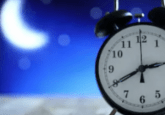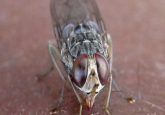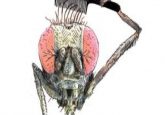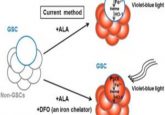Marching to the tic-tock of its own internal clock
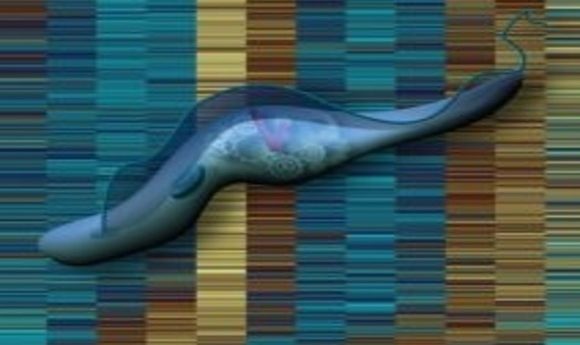
Refer a colleague
For the first time, researchers have identified a circadian clock in a parasite—one that causes sleeping sickness. Will this finding improve treatment for the infection?
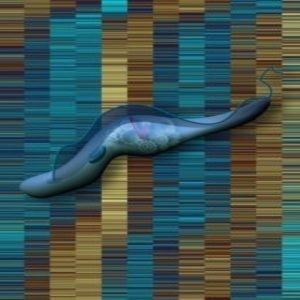
Credit: Fernando Augusto
Tsetse flies in sub-Saharan Africa often carry the Trypanosoma brucei parasite, which causes sleeping sickness, a devastating infection. Treatment exists, but it tends to be complex and carries its own risks.
Filipa Rijo-Ferreira, a postdoctoral fellow at the University of Texas Southwestern Medical Center in Dallas, wondered whether she could attack the disease through the parasite’s circadian rhythm—if it had one. Researchers knew that parasites have daily rhythms, but it wasn’t clear if those rhythms were simply a response to the circadian clock of the host. So Rijo-Ferreira brought together two labs—Joseph Takahashi’s circadian rhythm lab at UT Southwestern and Luisa Figueiredo’s parasite lab at the University of Lisbon in Portugal—to investigate the problem.
To mimic a circadian cycle for parasites in culture, the teams first entrained T. brucei to a cycle of light and dark. This didn’t work because parasites live in the dark, inside their hosts, so the researchers entrained them to temperature, following the host’s body temperature as it rises and falls throughout the day
Using RNA sequencing, the team next examined gene expression at numerous time points throughout the day. They found that expression of approximately 1100 genes (10% of the genome) followed a circadian rhythm during each of the two stages of the parasite’s life cycle (inside the tsetse fly and within the mammalian bloodstream). Most of these genes are found in cellular metabolic pathways. (Parasites require glucose, for example, and the host eats only at certain times of day.)
“We really wanted to know if these 10% have consequences for the parasite,” said Rijo-Ferreira. “So we decided to challenge the parasite based on metabolism outputs, using the oxidative stress challenge and then the drug challenge.”
They found an effect with the drug suramin, a medication commonly used to treat sleeping sickness. “Depending on the time of day you administer this drug, you have at least twice the efficacy,” said Ferreira. “So it is good to think that there might be a space for drug optimization without actually having to change the drug; you just change the time of day that you administer it.” Tests in mice and, later, in humans need to be done to confirm this.
Having a circadian clock could be quite helpful to a parasite: It can prepare to fight a stronger host immune response at certain times of day, while resting (and saving energy) during others, or slow down when there’s not an abundance of glucose (at night when the host isn’t eating).
Without these circadian genes, the parasite might not thrive. “Maybe if we target those genes, it will make the parasite weaker and less adapted and good at establishing an infection,” said Rijo-Ferreira.
Please enter your username and password below, if you are not yet a member of BioTechniques remember you can register for free.
